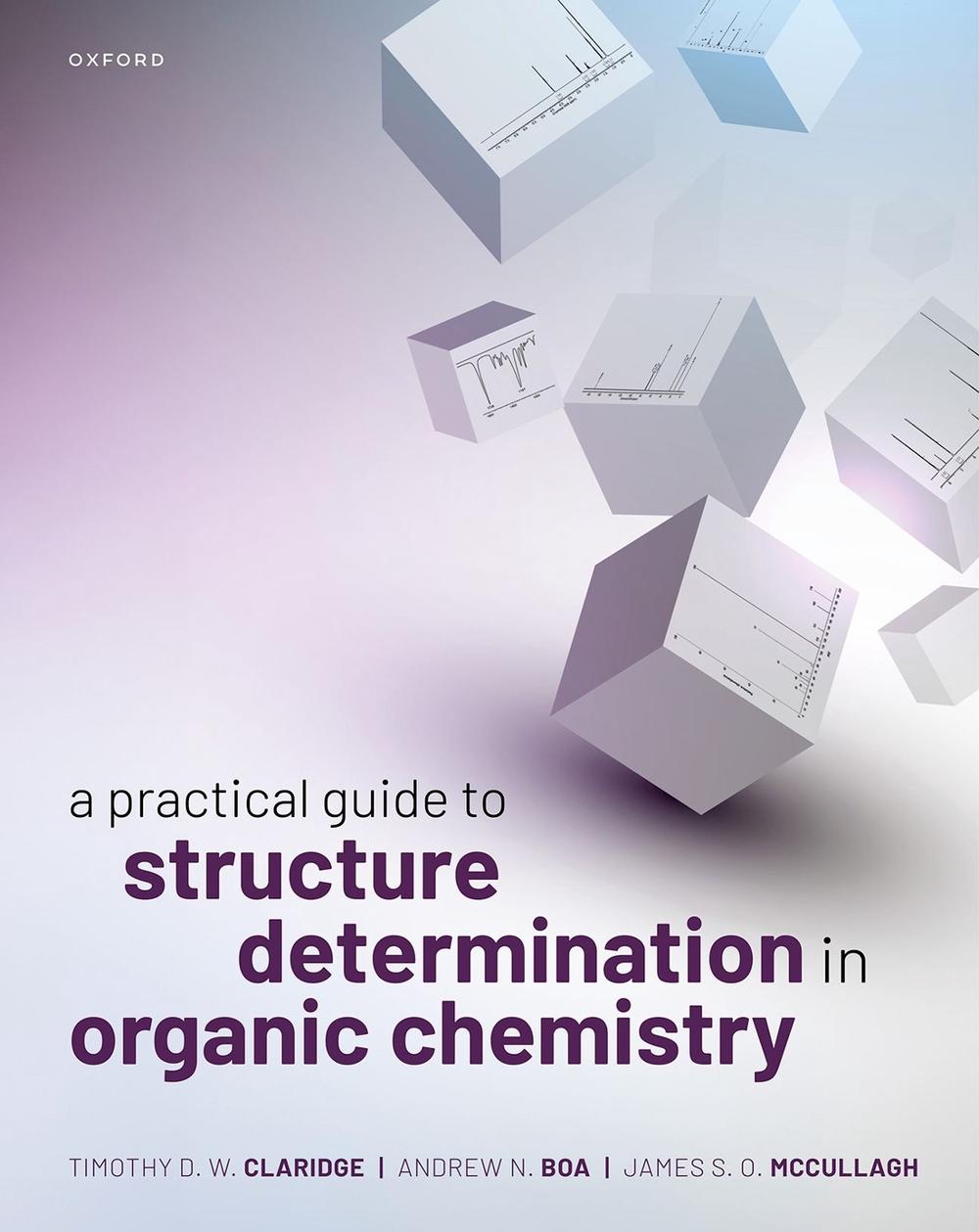
A Practical Guide to Structure Determination in Organic Chemistry
$129.37
- Paperback
240 pages
- Release Date
22 July 2025
Summary
Decoding Molecules: A Practical Guide to Organic Structure Determination
A Practical Guide to Structure Determination in Organic Chemistry offers a highly accessible and hands-on introduction to identifying the molecular structure of organic compounds from spectroscopic data.
It sets out a systematic approach to using and integrating spectroscopic data in a way that helps the reader to develop their skills in interpreting MS, NMR, and IR spectra in order to solve structure d…
Book Details
| ISBN-13: | 9780198712565 |
|---|---|
| ISBN-10: | 0198712561 |
| Author: | Timothy D.W. Claridge, Andrew N. Boa, James S.O. McCullagh |
| Publisher: | Oxford University Press |
| Imprint: | Oxford University Press |
| Format: | Paperback |
| Number of Pages: | 240 |
| Release Date: | 22 July 2025 |
| Weight: | 619g |
| Dimensions: | 276mm x 220mm x 7mm |
About The Author
Timothy D.W. Claridge
Tim Claridge is Visiting Professor of NMR Spectroscopy in the Department of Chemistry at the University of Oxford and Associate Director, NMR Analytics, at Exscientia Ltd. He has contributed to over 250 research publications and written a number of textbooks covering spectroscopy, including High-Resolution NMR Techniques in Organic Chemistry and the Oxford Chemistry Primer Introduction to Organic Spectroscopy (with Laurence M.Harwood).
Andrew Boa is a Senior Lecturer in Organic Chemistry at the University of Hull. He holds a DPhil in Chemistry from the University of York and has 29 years of experience in teaching organic and bio-organic chemistry. His research interests cover all aspects of organic and bio-organic chemistry and extend to applications for the biosourced polymer sporopollenin.
James McCullagh is Professor of Biological Chemistry and Director of the Mass Spectrometry Research Facility in the Department of Chemistry at the University of Oxford. He has 20 years of experience in the development of (bio)analytical chemistry techniques, in particular using mass spectrometry, with applications in chemical, biological, and medical research. He has contributed to over 150 journal publications, book chapters, and articles, as well as a textbook on MassSpectrometry (with Neil J. Oldham) in the Oxford Chemistry Primers series.
Returns
This item is eligible for free returns within 30 days of delivery. See our returns policy for further details.




